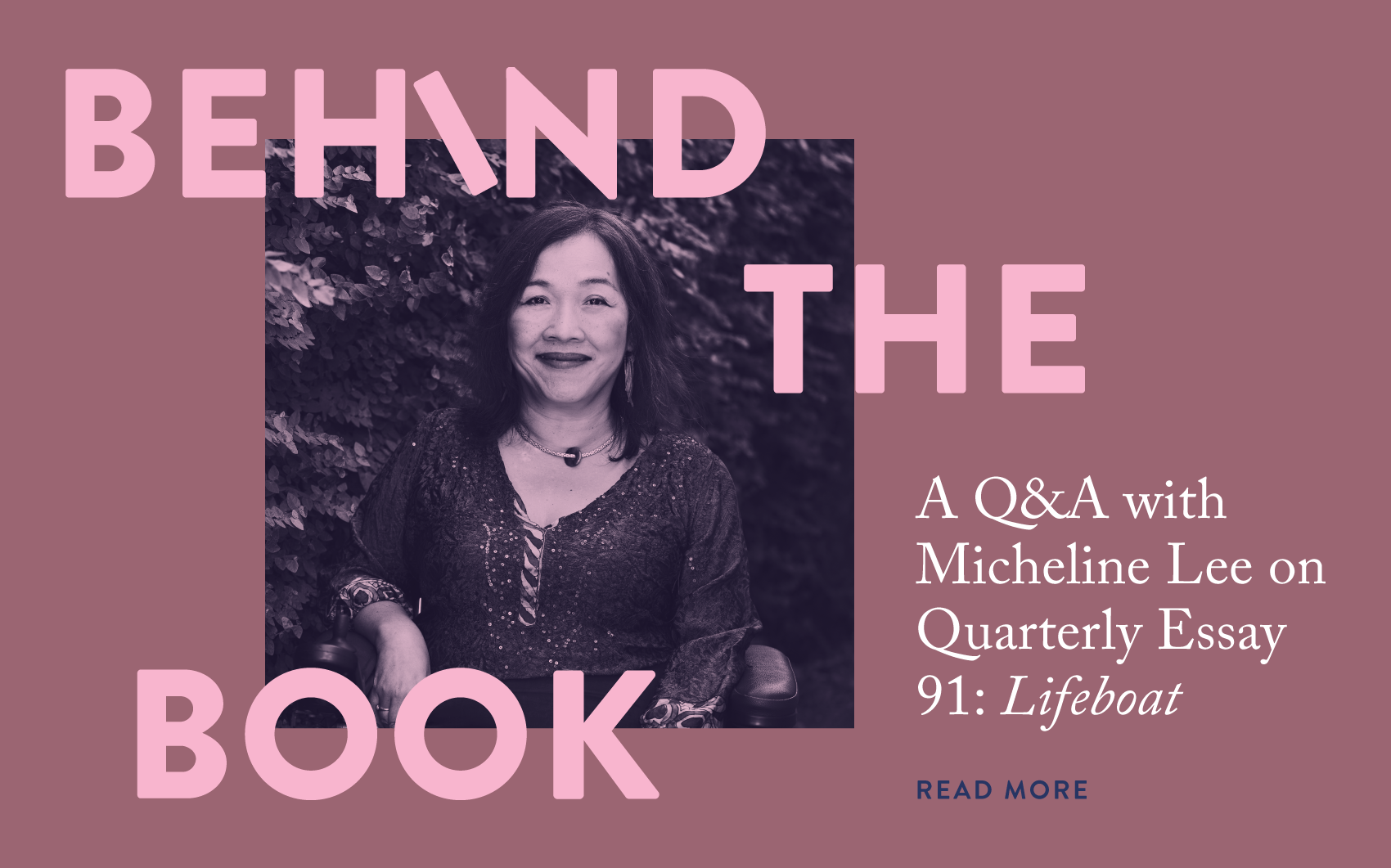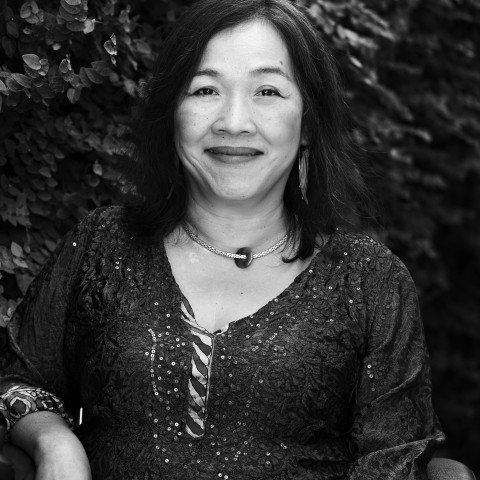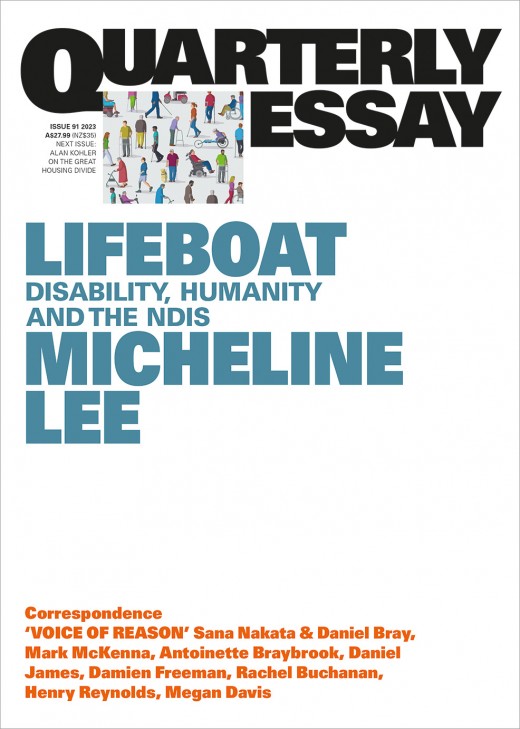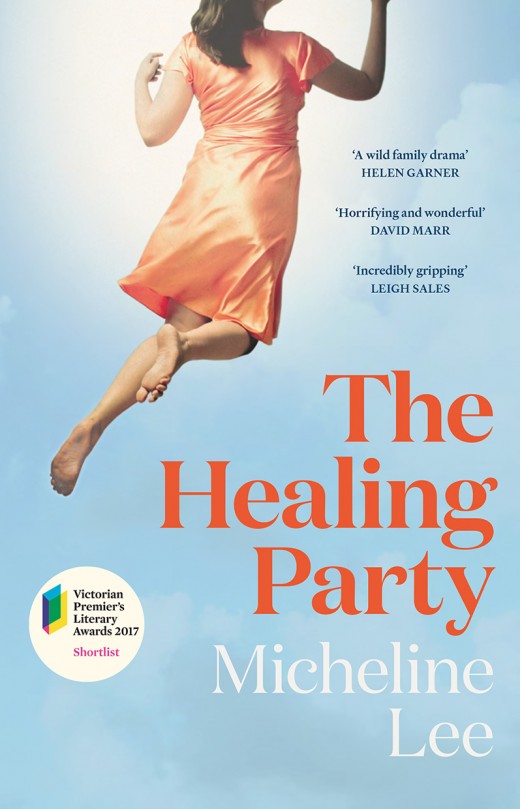News

News >
Behind the Book: A Q&A with Micheline Lee on Quarterly Essay 91: Lifeboat
Welcome to another instalment of Behind the Book. In this series, we chat to the people who bring you the books you love from Black Inc. – from the names you know to those you definitely don’t. Today, we’re speaking to the author of Quarterly Essay 91: Lifeboat, Micheline Lee.
Micheline Lee is a lauded Australian author, whose first novel The Healing Party was shortlisted in the Victorian Premier’s Literary Awards in 2017. Micheline has lived with a motor neurone disability from birth. In this generous interview, she speaks on the similarities between writing fiction and essays, how her Quarterly Essay came about and what she hopes it will achieve.
How did you first become a published author?
I used to be a painter and had exhibitions in Australia and overseas. As my disability progressed, it became increasingly difficult to manage a paintbrush. About ten years ago, I started trialling other ways to make art and decided to give writing a go. I had written 5000 words, the beginning of a novel, and submitted it for entry to a weekend writing workshop by Helen Garner and Michael Gawenda. I couldn’t believe it when I got in, and I couldn’t believe it when Helen, at the end of the workshop, offered to read more of my writing. A few months later, I had drafted three chapters and sent these to Helen. She said I didn’t need her comments, I just needed a publisher! Helen introduced me to Chris Feik, publisher at Black Inc. (and also editor of Quarterly Essay), and this led to my first novel The Healing Party being published.
You’re a writer of both fiction and essays. Do you approach each genre in the same way?
I try to write what I love to read. The novels I love reading come across like real life even if they’re futuristic or magical. And the non-fiction pieces I appreciate most have a story. So in my writing, no matter what genre, I try to bring together story and truth.
Speaking of essays, your Quarterly Essay Lifeboat: Disability, Humanity and the NDIS has just been released. How did it come about?
I started writing a combined creative writing/law PhD on disability. Much of my life has been spent trying to ‘overcome’ my disability rather than embracing it, and I wanted the opportunity to really delve into the place of disability in my life and in society. Last year I began a legal paper on whether the NDIS takes a human rights approach. I found though that the academic style was too theoretical and distancing, and did not bring to life the ways in which society excludes disabled persons and why a recognition of human rights is so important. I decided to write something more engaging and contacted Quarterly Essay editor Chris Feik. He has a terrific instinct for story and challenged me whenever I sounded too theoretical.
Why is the story of the National Disability Insurance Scheme so important to tell?
Our society has been designed for a narrow range of ability that has left disabled people excluded and disadvantaged. Ten years ago, disabled people fought for and achieved the introduction of the NDIS, a transformative new national structure as big as Medicare. The NDIS promised to provide the individual supports that disabled people need in order to be able to participate in society, and to help shape the physical and social environment to be more inclusive.
The implementers of the scheme however adopted a market approach to disability services that meant only those who could be the ‘ideal consumer’ and attract profit seeking private service providers would benefit. Disabled people who can’t advocate for themselves and don’t have someone to advocate for them, those who live in remote areas and those who have complex needs requiring specialist services have missed out. Broader changes to make society more inclusive were also neglected. Today, rather than creating a society that accommodates all abilities, the NDIS has become a lifeboat for the relatively few individuals who can scramble on.
I wrote this essay to try to understand how a scheme of such import, cost and scale, and with all the right goals, failed to live up to its promise. The NDIS is now being reviewed. We want to ensure that the same mistakes are not repeated.
What message do you hope readers will take from Lifeboat?
Disability needs to be seen as part of the normal variation of life, such that the measures to make society inclusive are also normal and expected rather than seen as a burden. Disabled people need to lead the way on the reforms and be listened to. In this way we can respond to the reality of the person’s capability, needs and context rather than replicate discriminatory systems as the NDIS has. People in subordinated positions have access to knowledge and understanding about systems of power that the advantaged do not have, and a system like the NDIS can’t work effectively if it does not draw on this knowledge.
Read the previous instalment of Behind the Book, a Q&A with our editorial team on the submissions inbox.
To stay in the loop with Behind the Book, join the Friends of Black Inc. mailing list.
Share this post
About the author
Micheline Lee's novel, The Healing Party, was shortlisted for several awards including the Victorian Premier's Literary Award. Born in Malaysia, she migrated to Australia when she was eight. Micheline has lived with a motor neurone disability from birth. She is also a former human rights lawyer and painter. Her latest Quarterly Essay is Lifeboat: Disability, Humanity and the NDIS.
Author photograph: Susan Gordon-Brown
More about Micheline Lee





